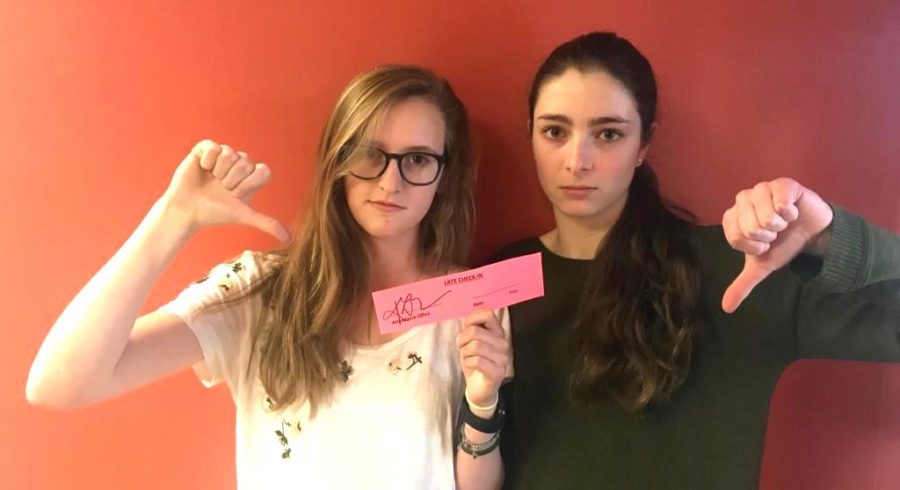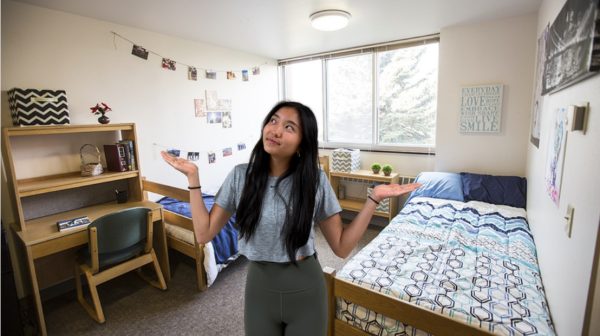Better Late Than Never With New Tardy Policy
Get to Class! Brandishing their tardy slip, sophomores Olivia Chewning and Maddy Carter adjust to the new realities associated with the school’s new tardy policies.
In the eyes of the administration, many students make a habit of lax morning routines and slow strolls through hallways in between bells. As a result, North Atlanta leaders have decided to implement a new set of policies on tardy-related issues. Students have met the changes with mixed feelings as they adjust to new realities.
Tardy policy changes have been spearheaded by Assistant Principal Lakecia Bonner who has dedicated her time and energy ensuring its ultimate success. Bonner said the policy changes are solely directed toward improving the school’s learning environment. “It’s pretty basic: If kids are not in class they’re not learning so it’s our job to get them into class,” she said. “That’s the spirit behind the new policy.”
So: Here’s the breakdown. After a maximum of four tardies to any one specific class, students will receive a phone call home to their parent-guardian. The student is then expected to attend a morning or after-school detention. If they do not attend, one day of detention will be added. At five tardies a student will receive one period of ISS while six tardies will result in a full day of ISS. At seven tardies, a teacher completes a referral and student is assigned to Saturday School. (Y’all did know there’s Saturday school, right?) If the tardies exceed nine or 10, a discipline referral will be sent to administrators. Administrative action may include removal of privileges (things like parking, pep rally or prom), conference with parents, establishment of behavior contracts, a suspension or worse.
The policy is not without its critics. A random sampling of student opinion cited outside forces like heavy traffic and unpredictable weather patterns that make tardies unavoidable. The policy, in the minds of these critics, is unrealistic and unachievable. Students have expressed their concerns, describing the procedure as impractical. “I understand the idea behind the new policy,” said sophomore Molly Harrigan. “But just we can’t predict things that are out of our control.”
As second semester proceeds, a number of students have already found themselves heading toward trouble in relation to the policy. Even so, the school has maintained its unwavering enforcement of the new rules. The adjustment will undoubtedly prove to students to be an challenging, yet interesting transition. As the new year kicks off, administrators — and most students, right? — are looking forward to a punctual and detention-free semester.











